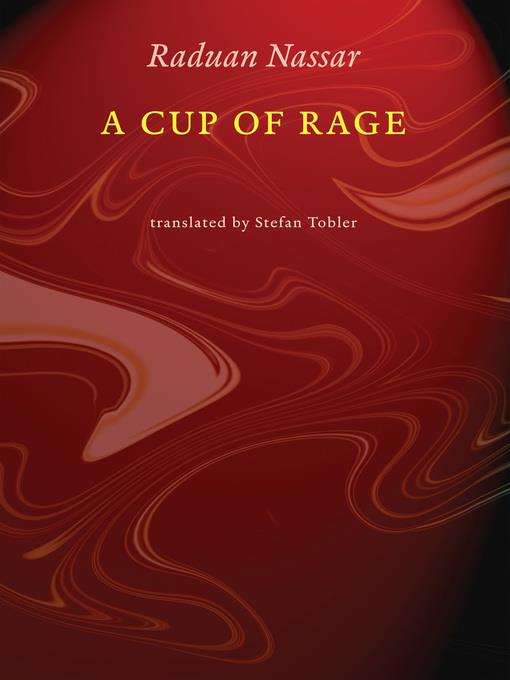
A Cup of Rage
کتاب های مرتبط
- اطلاعات
- نقد و بررسی
- دیدگاه کاربران
نقد و بررسی

October 3, 2016
This erotically charged story of one day in the life of a man and his younger female lover, which takes place at the man’s house in the Brazilian countryside, is a slim but explosive examination of power and violence in human relationships. The novella, first published in Brazil in the 1970s, has been exquisitely translated by Tobler. The densely complex prose belies the rather simple story of an intimate sexual encounter between a man and woman followed by a destructive argument the following morning, spurred on by the man’s fury at the discovery of a gap in his hedge that had been created overnight by leaf-cutter ants. Both lovers hurl insults at the other, and the man becomes increasingly enraged as his lover taunts him, knowing exactly how to bring out his dangerous passion. The threat of violence and its inevitability is embedded in almost every moment between the characters as their power struggle plays out, and much of the novella’s force comes from the implied relationship between violence and desire, pain and pleasure. The impeccably intricate structure—each chapter is told in a single sprawling sentence—and the intense style lend a great deal of intellectual weight to this powerful, challenging work.

November 15, 2016
An affair goes sour and carnality turns to violence in reclusive Brazilian writer Nassar's (barely) novella.Our narrator is a well-to-do farmer, a stranger to himself. His paramour is a writer from the city, and she is a stranger to him as well--at least, as Nassar writes, "For a few moments in the room we seemed to be two strangers observed by somebody, and that somebody was always her and me." We readers are the ones doing the observing, and it's not pretty: the man turns fretful almost at once, his attention diverted by the fact that leafcutter ants have gnawed a hole in his hedge; the woman, much younger, wants the attention on her, but she is thinly contemptuous. Their heated contact turns physical in all the wrong ways; in just four dozen pages, Nassar charts the ugly implosion of a once-passionate affair. But more than that, he metaphorically recapitulates events in Brazil's history, for this book was first published in 1978, when the nation was slowly emerging from a dark military dictatorship; when the young woman calls the man a fascist, she is not being hyperbolic, and when he admits that she's not wrong, he conjures up a whole set of associations that may not be meaningful to readers outside that specifically Brazilian experience. Still, his numerous quirks and phobias--including frequent allusions to castration and his not-unfounded certainty that the insects are coming to devour him as well--require no translation. Nassar is a modernist par excellence, his onrushing style reminiscent at times of Beckett; each of the brief chapters here is made up of just a sentence or two that run for pages at a time, capturing the breathlessness of lust and rage. Vivid, immediate, and mostly unpleasant. Readers new to Nassar may want to begin with his simultaneously released novel Ancient Tillage, which is less experimental though just as cynical.
COPYRIGHT(2016) Kirkus Reviews, ALL RIGHTS RESERVED.

Starred review from December 1, 2016
Born in Brazil in 1935 and from a Lebanese family, Nassar has been quietly raising livestock since 1985, a fact reflected in the settings of these two masterly novels, just translated into English. He's also a leading world writer, offering emotionally wrought scenes in vivid, liquid language, and his discovery will gratify anyone interested in fine literature. Ancient Tillage features Andre, who lives on a farm dominated by his strict, pious father. There's a strong religious feeling to the life here: "Love, union, and our work alongside our father was the message of austere purity stored safely in our shrines." Yet the descriptions of farm life is almost sensual--Sudanesa the nanny goat is "generously formed," and Andre has appointed himself her "lyric shepherd." Given the tension between such opposites in an isolated setting, it's not surprising that Andre longs for sister Ana, and the novel crescendos to family crisis told in explosive prose.
Explosive is the operative word for A Cup of Rage, featuring an encounter between an older man on his far-flung farm and a young journalist. Their ferocious sexual exchange is described in luscious language just one step away from violence--"our teeth biting each other's mouths as if biting into the soft flesh of the heart"--and real violence boils up the next morning when the man notices a gap in his hedge carved by leaf-cutter ants. His intense rage is carried over to the young woman, who remains emotionally in charge and gives as good as she gets; the hapless housekeeper and groundsman clearly know how to manage him. At the end of this acute portrait of frightening human emotion, the man seems as much needy as crazed. Though brief, this book packs a punch, and as with its companion, the sentences can run on for pages but remain readably lucid. VERDICT Both books are highly recommended for ambitious readers.
Copyright 2016 Library Journal, LLC Used with permission.

























دیدگاه کاربران